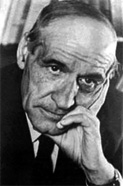About the author…
After receiving his doctorate at the Complutense University of Madrid, José Ortega y Gasset (1883-1955) read philosophy in Germany, most notably at the University of Marburg where he studied under the neo-Kantian Hermann Cohen. Returning to Madrid, he taught philosophy at the Complutense Univeristy of Madrid. He wrote, edited, and published work in cultural and political thought until the devastating eruption of the Spanish Civil War in 1936. Having served as a member of Parliament and a civil governor, Ortega left Spain, not to return until 1948 when he established with Julían Marías The Institute of Humanities and sparked the resurgence of contemporary Spanish philosophy. In his Meditaciónes del Quijote, Ortega writes, "I am I and my circumstances" the world in which I live is "the other half of my personality." The activity of living is a synthesis of self and the world. Unlike most philosophers, Ortega, himself, lived his project; his life is a vital part of the historical drama of world events in the first half of the twentieth century.
About the work…
In his essay "Meditación de la técna" appearing in
Ensimismamiento y alteración,
from which this reading is excerpted, Ortega seeks to answer the question, "Qué es la técnica?" Human beings, unlike other living things, are not limited by natural circumstance because they can, so to speak, reform nature through technical invention and accomplishment. The essence of being human is this adaptation of an environment to the individual—not the adaptation of the individual to the environment. The attainment of such practical technicality is not based on the instinct to live so much as it is based on the necessity to live well, even though these extra-natural ideals of well-being develop in different ways in different historical periods. Since man's being diverges from his nature, to live authentically, Ortega writes, each person must uniquely construct his life's aspirations through "historical reason." An authentic life is one where a person becomes his mission in life; an inauthentic (and consequently immoral) life is a life where a person avoids his vital project by taking refuge in happenstance.
Clarify as carefully as possible Ortega's distinction between the innate or biological nature of human beings and the invented or extra-natural life of human beings. Does this distinction rest on the difference of man's self-awareness?
Explain what Ortega means when he states human beings are given "the abstract possibility, but not the reality, of existence"? How does Ortega define "existence"?
Why does Ortega think that the transcendent or extra-natural aspect of a human being is not self-aware but is authentic, whereas the natural or biological aspect is self-aware but is not authentic? What do you think Ortega means by "authenticity"in this regard?
Why does Ortega reject the term "spirit" to denote the transcendent or extra-natural aspect of human existence?
How does Ortega distinguish between human beings and all other things in the universe? What does Ortega say it means for a human being to exist? Explain this meaning in terms of the "constitutive instability of being."
What does Ortega characterize as the immediate and present crisis facing contemporary man, i.e, the "sickness of our age"?
What does Ortega mean when he writes that man is a secondary causa sui? Analyze Ortega's "vital program" for life in terms of the possibilities of being. What is the one limit to authentic being?
Explain Ortega's conception of an individual's life in terms of his historical dialectic of a program of life. What does he mean when he writes,"man goes about accumulating being."?
